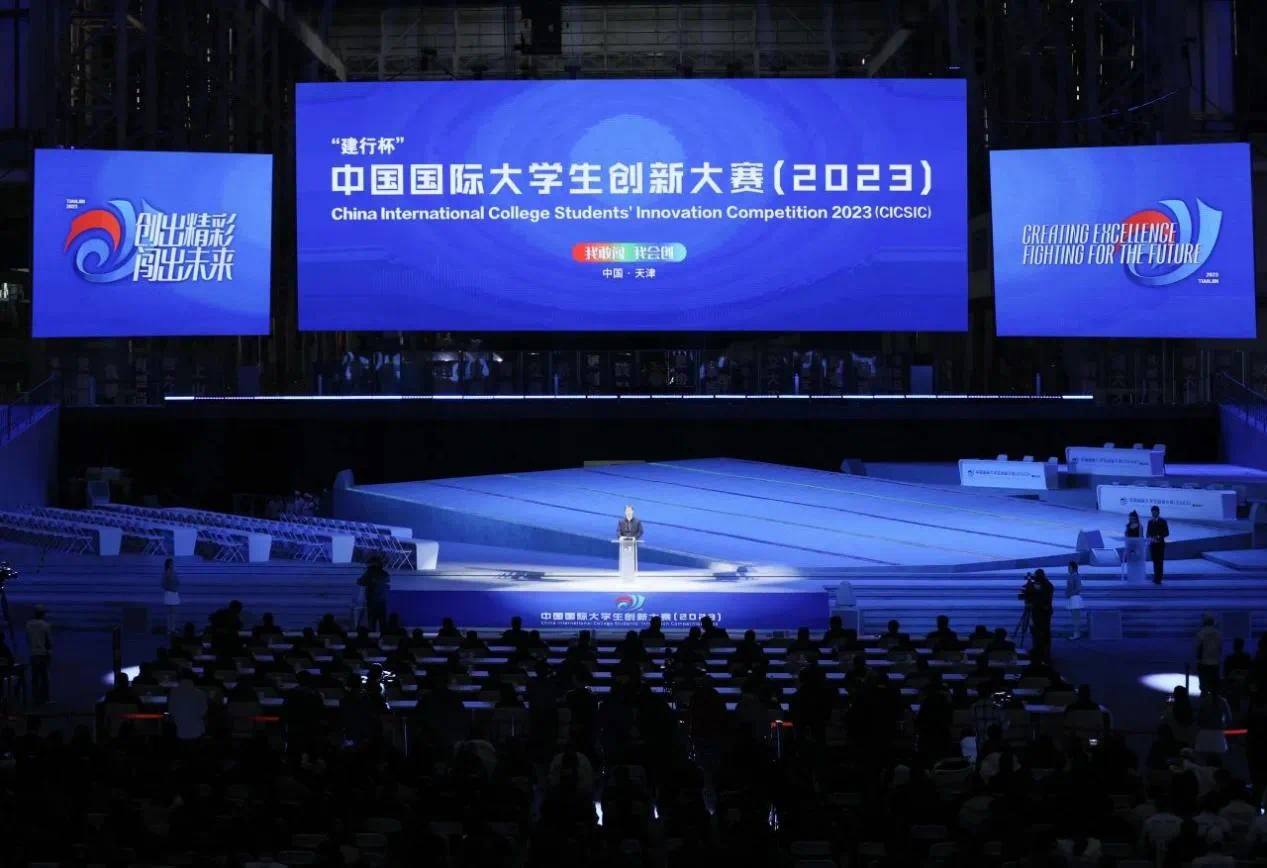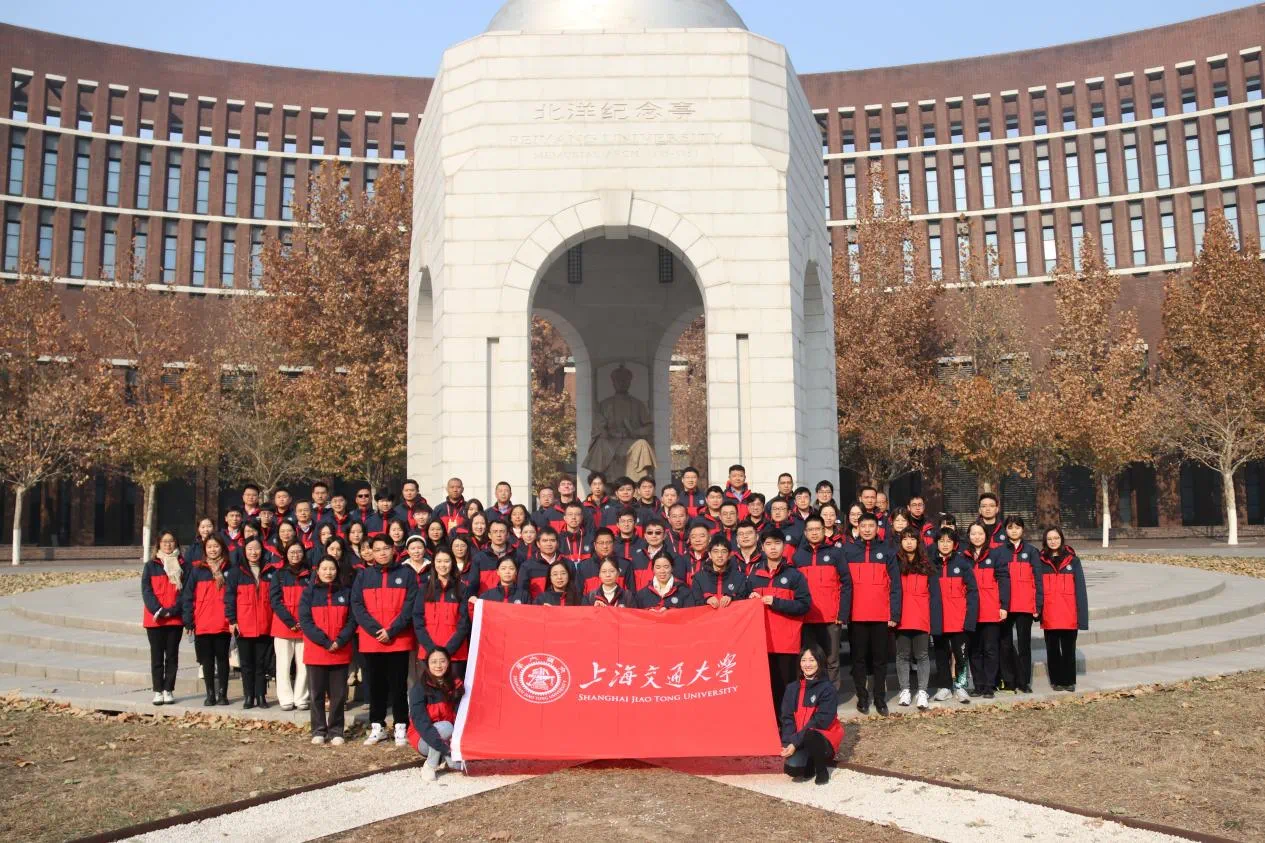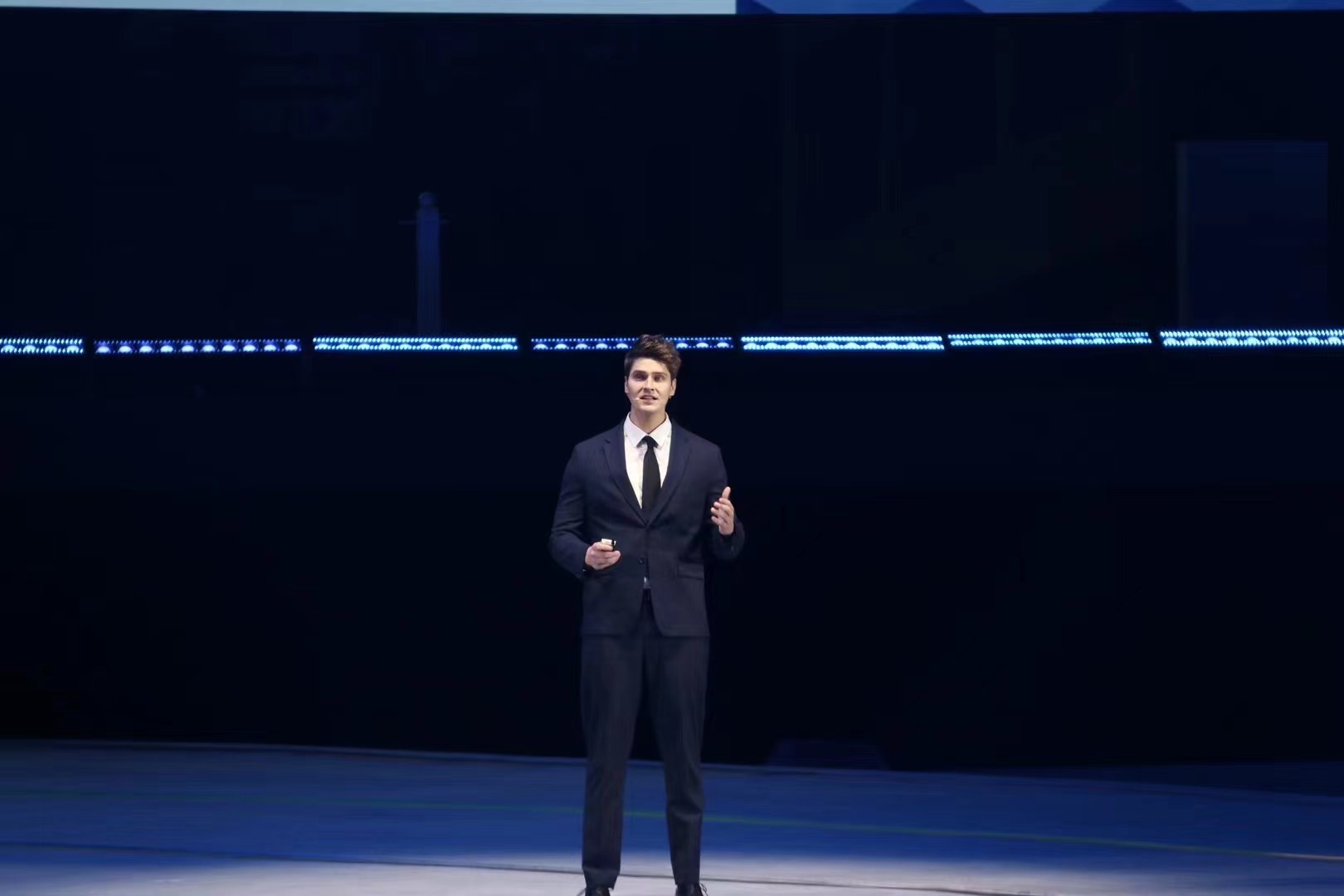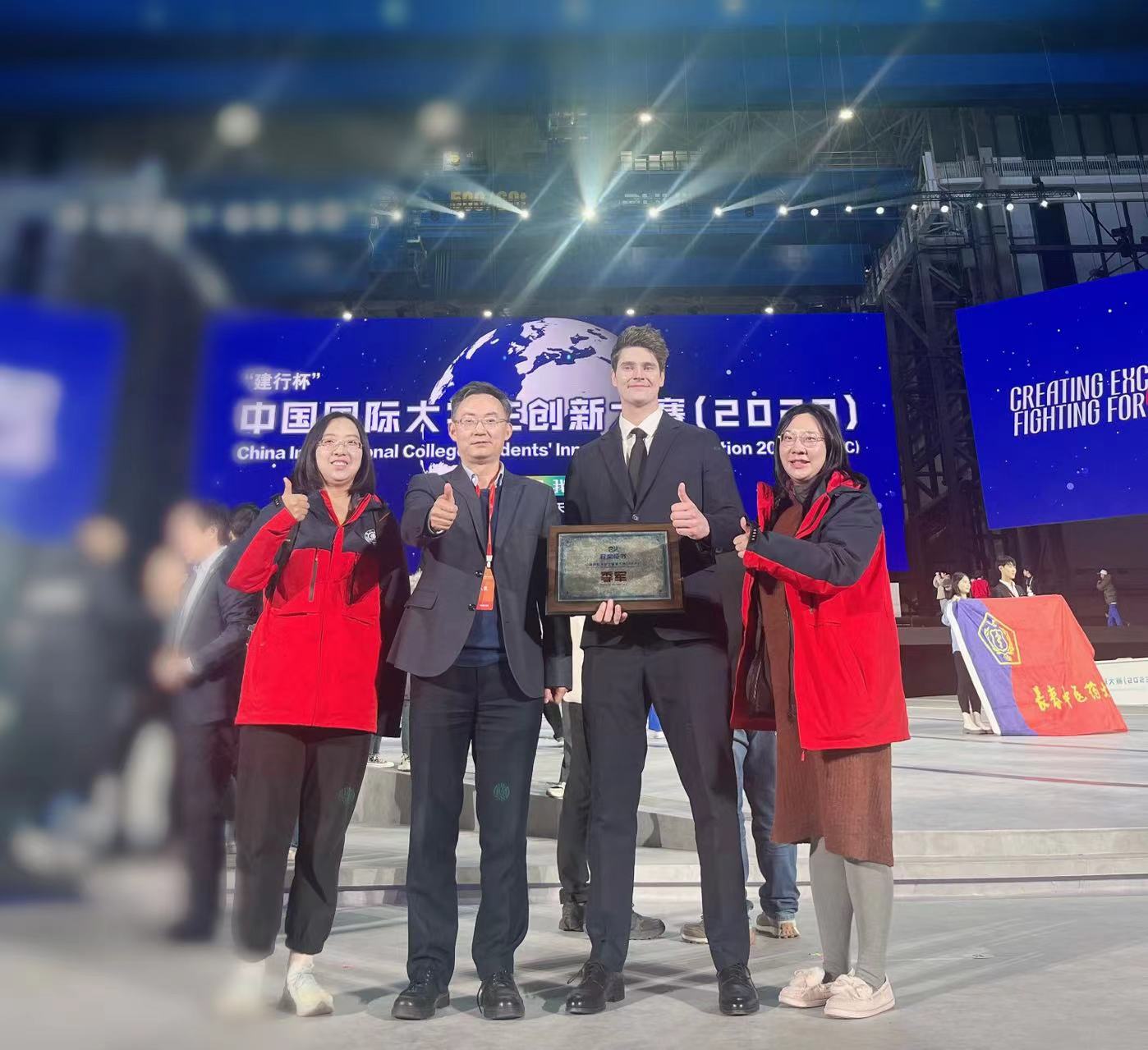From December 3rd to 6th, the China International College Students Innovation Contest (2023) was successfully held. As the top-ranked event by the Chinese Higher Education Society, this year's competition received a total of 4.21 million projects and 17.09 million registrations from 5,296 schools in 151 countries and regions worldwide. Among them, 1,260 outstanding projects advanced to the final round, and 423 projects were awarded the gold medal.



The international project "Waste-to-Value: Green and Efficient Method to Convert Shell Waste into High-value Chitin Product," guided by Associate Professor Chen Xi from the Low Carbon College of Shanghai Jiao Tong University, won the national gold medal. It also entered the championship competition as a seed project for the gold medal (only 6 teams nationwide qualified) and eventually achieved the third place in the country.


Shanghai Jiao Tong University President and Academician of the Chinese Academy of Sciences, Ding Kuiling, Vice President Zhang Zhaoguo, Deputy Vice President Wu Jingyi, and leaders from various offices, departments, and faculties attended the competition to observe and cheer for our university's participating teachers and students.
.jpg)
Dean Zhao Changying of the Low Carbon College showed concern and provided guidance to the projects of the institute.

International Project (Third Place):
Waste-to-Value: Green and Efficient Method to Convert Shell Waste into High-value Chitin Product
Project Summary:
The project, led by Dickieson Maxim, an American doctoral student at the National University of Singapore, aimed to study China's experience in green development. Maxim recognized the extensive and high economic value of chitin derived from shell waste in the marine environment. However, existing methods of extracting chitin suffer from high costs, low purity, and severe environmental pollution. To address this, the team developed an exclusive formula for processing shrimp and crab shells to remove proteins, as well as a self-contained carbon dioxide reactor with internal compartments. This innovation improved the product's purity (up to 99.3%) while reducing carbon emissions by approximately 86% and production costs by around 54%. If this technology is promoted globally, it is estimated to reduce annual CO2 equivalent emissions by 26.7 million tons.

The Low Carbon College has always attached great importance to innovation and entrepreneurship education and the cultivation of high-level innovative talents. The institute continuously promotes the integration of innovation and entrepreneurship education with professional education, and actively promotes the high-quality development of higher education. Under the careful guidance of the Student Innovation Center, the Low Carbon College has won the gold medal in this competition for two consecutive years and achieved a new breakthrough this year by winning the third place in the country. The institute's Student Council continues to explore high-quality projects for participation, support and nurture excellent participating teams, fully tap into students' potential, and promote "competition-driven teaching, learning, and creativity," thereby effectively assisting in the cultivation of low-carbon talents.The Low Carbon College has always attached great importance to innovation and entrepreneurship education and the cultivation of high-level innovative talents. The institute continuously promotes the integration of innovation and entrepreneurship education with professional education, and actively promotes the high-quality development of higher education. Under the careful guidance of the Student Innovation Center, the Low Carbon College has won the gold medal in this competition for two consecutive years and achieved a new breakthrough this year by winning the third place in the country. The institute's Student Council continues to explore high-quality projects for participation, support and nurture excellent participating teams, fully tap into students' potential, and promote "competition-driven teaching, learning, and creativity," thereby effectively assisting in the cultivation of low-carbon talents.
Competition Introduction:
The China International College Students Innovation Contest (2023) is a skills competition jointly hosted by 12 departments including the Ministry of Education and the People's Government of Tianjin, and organized by Tianjin University. Chen Min'er, Secretary of the Tianjin Municipal Party Committee, Huai Jinpeng, Secretary of the Party Group and Minister of the Ministry of Education, Zhang Gong, Deputy Secretary of the Tianjin Municipal Party Committee and Mayor, Wu Yan, Member of the Party Group and Vice Minister of the Ministry of Education, and other officials attended the relevant activities. The competition aims to deepen comprehensive reforms in higher education, stimulate students' creativity, use innovation to lead entrepreneurship, employment driven by entrepreneurship, and promote high-quality entrepreneurship and employment among university graduates.
LCC Delegation Visits the UK and France
2025-12-16